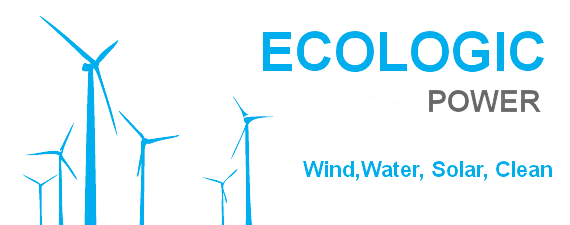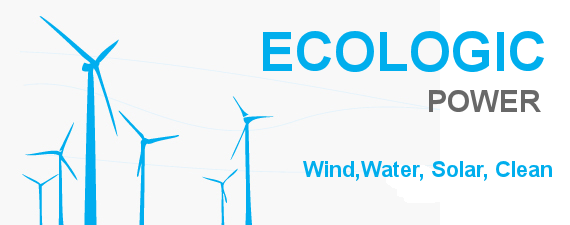Which is better for your home—gas or solar? Both have their pros and cons, and the best option for you will depend on your specific situation. Here is a look at some of the key factors to consider when making your decision.
How did solar panels become so popular?
Solar power has become increasingly popular in recent years as an alternative to traditional forms of energy like coal and gas. There are a number of reasons why solar panels have become so popular. First, solar power is a clean and renewable source of energy that doesn’t produce harmful emissions or require mining or drilling. Second, solar panels are relatively easy and inexpensive to install, especially compared to traditional forms of energy generation. Finally, solar panels can be used to generate electricity even in remote or rural areas that might not have access to the grid. As more and more people become aware of the benefits of solar power, it’s likely that solar panels will only become more popular in the years to come.
Pros and cons of solar panels vs gas
There are a few key factors to consider when deciding whether solar panels or gas are right for you. Here are some of the pros and cons of each:
Solar Panels:
Pros:
- Solar power is clean and renewable, so it doesn’t produce harmful emissions or require mining or drilling.
- Solar panels are relatively easy and inexpensive to install.
- Solar panels can be used to generate electricity even in remote or rural areas.
Cons:
- They require sunlight to generate power, so they may not be effective in cloudy or shady areas.
- Solar panels can be damaged by severe weather, such as hail or high winds.
- Solar panels may not generate enough power to meet all of your energy needs, especially if you have a large home or use a lot of energy.
Gas:
Pros:
- Gas is a reliable source of energy that can be used even in cloudy or shady areas.
- Generally, it is more affordable than solar panels, and the cost of gas is relatively stable.
- Gas is easier to store than solar panels, so you don’t have to worry about power outages.
Cons:
- Gas is a fossil fuel, so it produces harmful emissions when burned.
- The cost of gas can fluctuate, and it may become more expensive in the future.
- Gas requires a network of pipelines and infrastructure, which can be expensive to build and maintain.
Cost
The upfront cost of solar panels can be higher than that of a gas system. However, the long-term savings with solar can be significant. Solar panels have no fuel costs, and they will last for many years with little to no maintenance required. Gas systems, on the other hand, have ongoing fuel costs that can add up over time.
Environmental Impact
Solar panels have no emissions, making them a much more environmentally-friendly option than gas systems. If you are looking to reduce your carbon footprint, solar is the way to go.
Performance
Solar panels work best in areas that get plenty of sunlight. If your home does not get a lot of sun, solar may not be the best option for you. Gas systems, on the other hand, can work in any location.
Space Requirements
Solar panels can take up a significant amount of space. If you have a small yard or live in an urban area, space may be limited. Gas systems are much more compact and can be a better option in these situations.
Making the switch to solar can be a major investment. However, it is important to weigh all of the factors before making a decision. Consider your needs and budget to decide if solar or gas is right for you.
Which is better for the environment? Solar or gas?
When it comes to solar power vs. gas, there are a few key things to consider. Solar power is a renewable resource, meaning that it can be replenished naturally and won’t run out the way fossil fuels will. It’s also much cleaner for the environment, as it doesn’t release any harmful emissions. However, solar power does have some drawbacks. It can be more expensive to install solar panels than it is to hook up to a gas line, and solar power isn’t always available when you need it—for example, at night or on cloudy days. Gas, on the other hand, is a nonrenewable resource, which means it will eventually run out. It’s also a major source of greenhouse gas emissions, which are harmful to the environment. However, gas is relatively inexpensive and easy to access. So which is better for the environment—solar or gas? Ultimately, that depends on your individual circumstances.
How long do solar panels last?
Solar panels are a popular choice for homeowners looking to reduce their reliance on fossil fuels. But how long do solar panels actually last? The answer depends on a number of factors, including the type of solar panel, the intensity of sunlight, and the climate. Most solar panels have a warranty of 20-25 years, but some manufacturers offer longer warranties of up to 30 years. However, solar panels typically have a lifespan of 40-50 years, meaning that they can continue to generate electricity long after their warranty has expired. In fact, many solar panels actually reach their peak output after about 10 years of use. So if you’re considering making the switch to solar power, rest assured that your investment will pay off for many years to come.
Why don’t we use solar energy more?
One of the most abundant sources of energy on Earth is the sun. Solar power can be used to generate electricity, heat homes and water, and power vehicles. So why don’t we use solar energy more? One reason is that solar power is still relatively expensive. The initial cost of solar panels can be high, and it can take several years for the savings to offset the initial investment. Additionally, solar power is not as reliable as other forms of energy, such as gas. Solar panels only produce electricity when the sun is shining, so solar-powered homes and businesses still need to have a backup source of power for cloudy days or nighttime. Despite these challenges, solar energy is a promising renewable resource that is becoming increasingly more affordable and reliable. As we continue to research and develop new solar technology, we may find that solar power becomes an increasingly important part of our energy mix.
How do climate change and politics play into this debate?
The debate over solar power versus gas is one that has been going on for years, with both sides arguing fiercely about their preferred method of energy production. However, climate change and politics have begun to play a role in this debate, with solar power advocates claiming that solar is the only way to truly combat climate change. Gas advocates, on the other hand, argue that solar power is too expensive and unreliable to be a viable option. As the debate continues, it is becoming increasingly clear that climate change and politics are two factors that cannot be ignored. It’s the only way to truly combat climate change. Gas advocates, on the other hand, argue that solar power is too expensive and unreliable to be a viable option. As the debate continues, it is becoming increasingly clear that climate change and politics are two factors that cannot be ignored. Solar power is too expensive and unreliable to be a viable option. As the debate continues, it is becoming increasingly clear that climate change and politics are two factors that cannot be ignored.
The article gives a good account of the solar vs. gas debate. It is important to consider all the factors before making a decision on which is better for you and your environment. The article has raised some valid points for both sides of the argument, but in the end, it is up to the individual to decide what they think is best. Thanks for reading!


